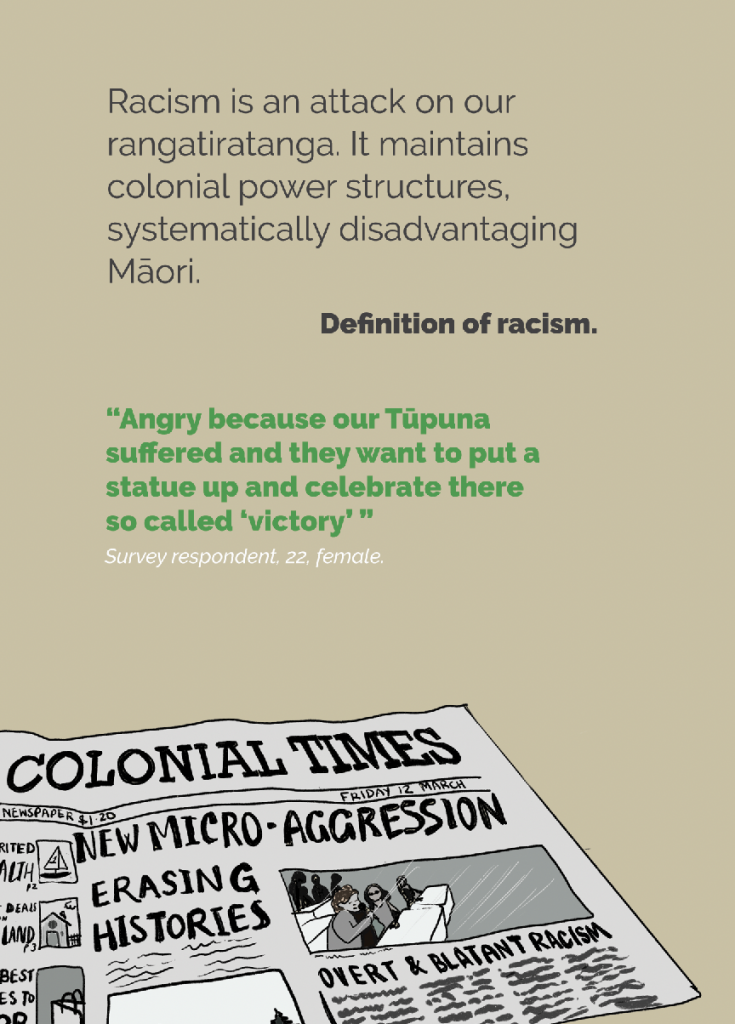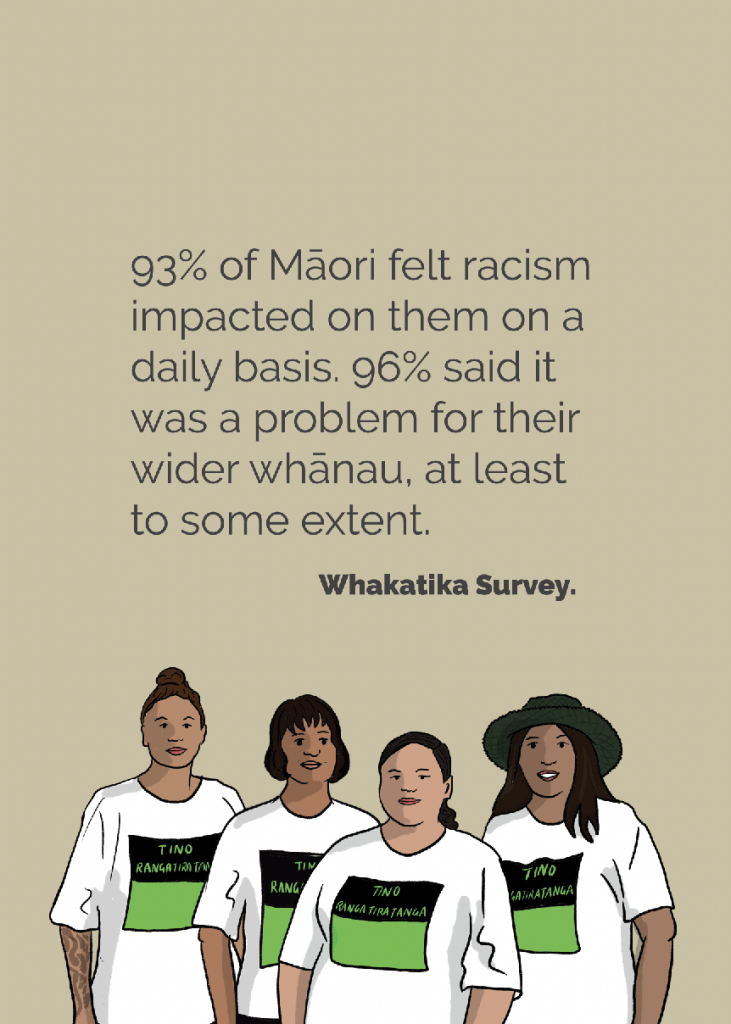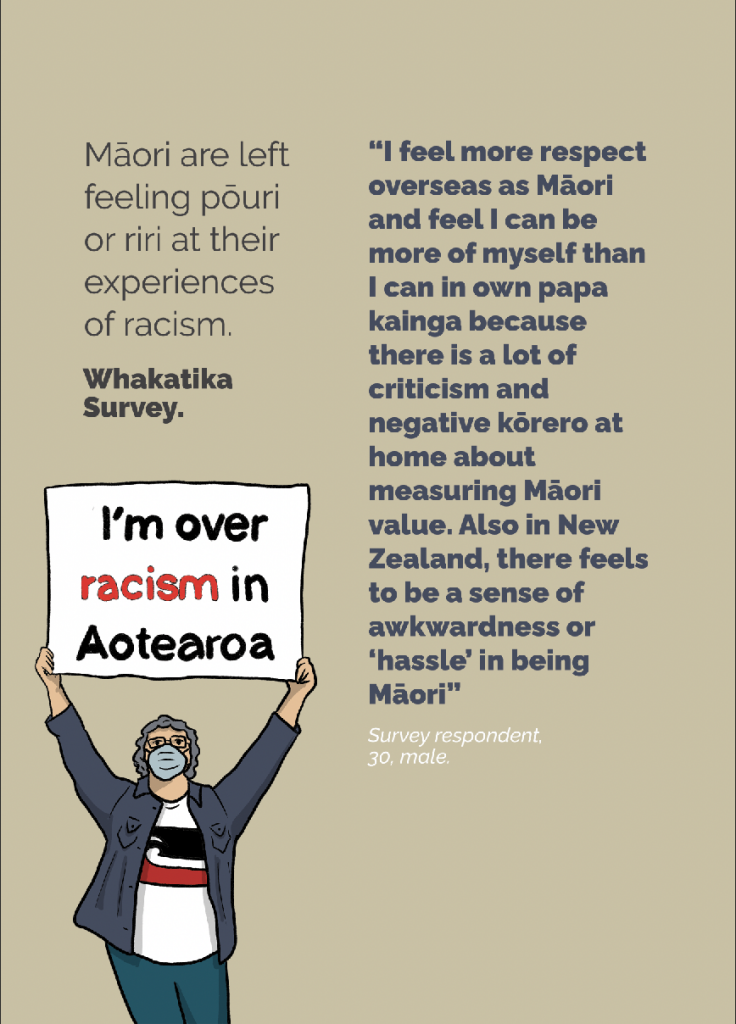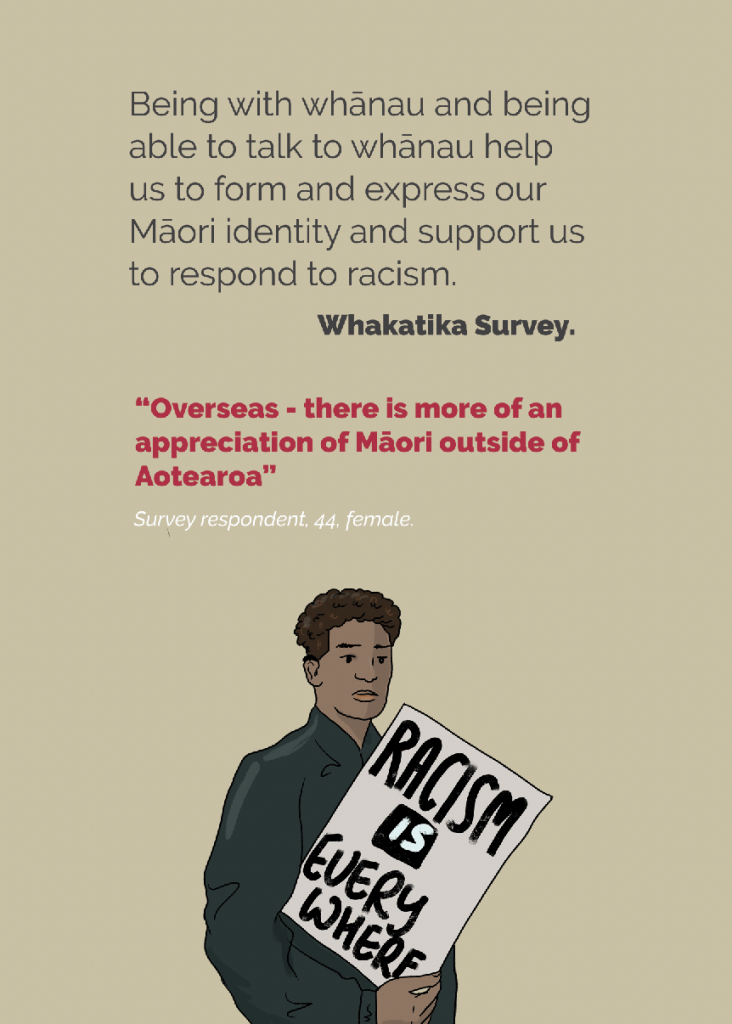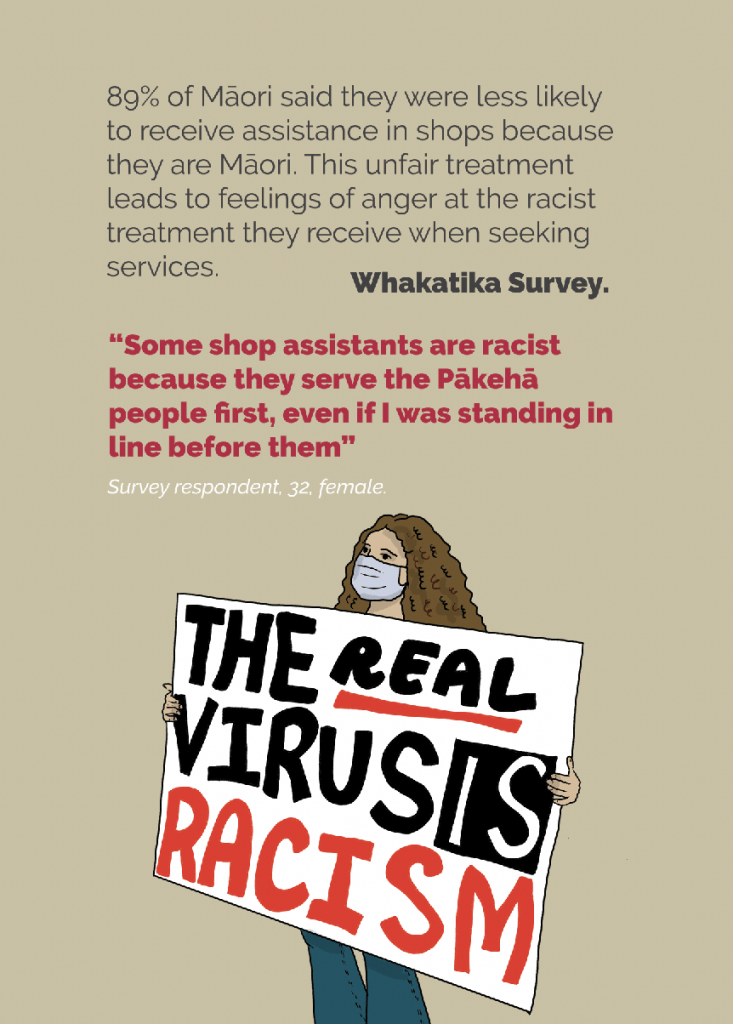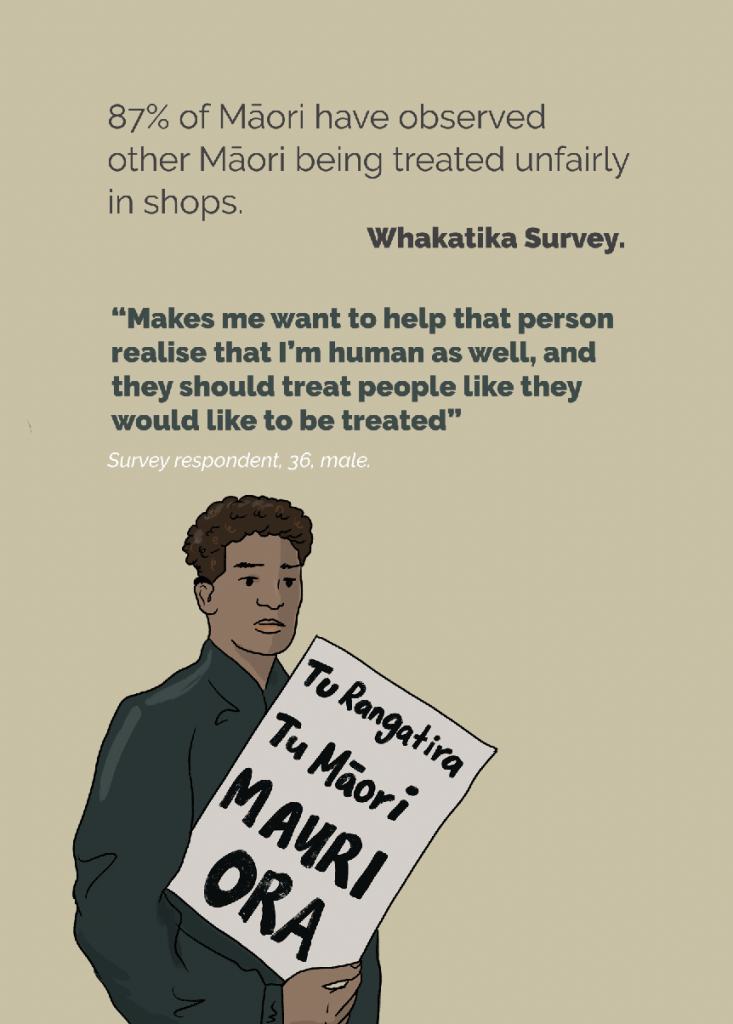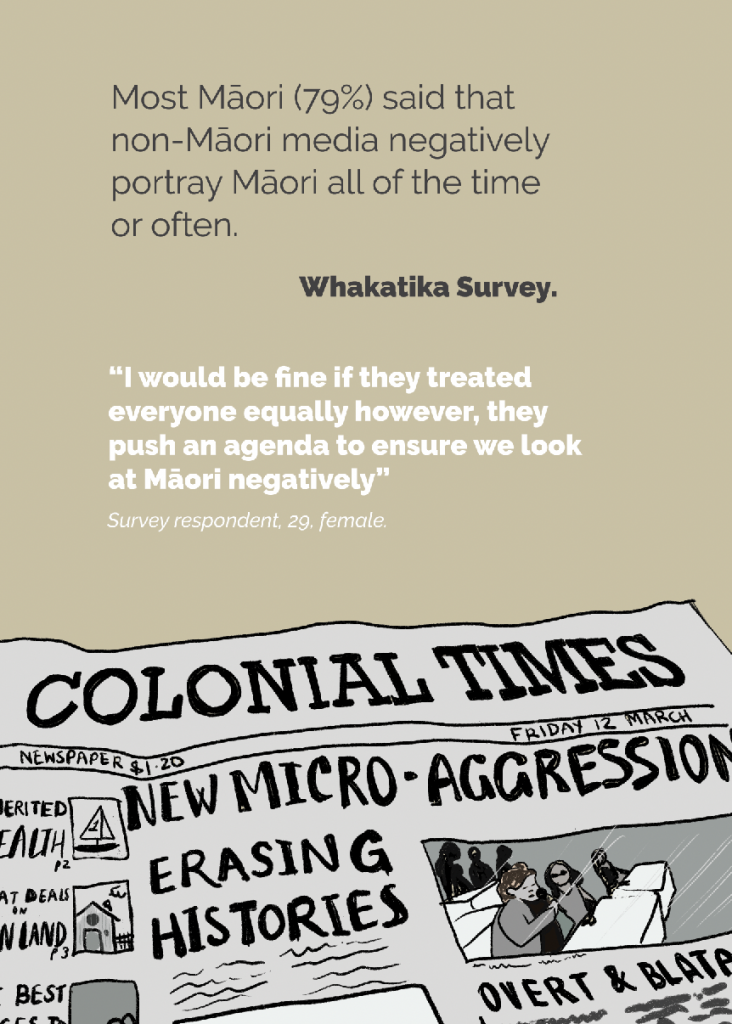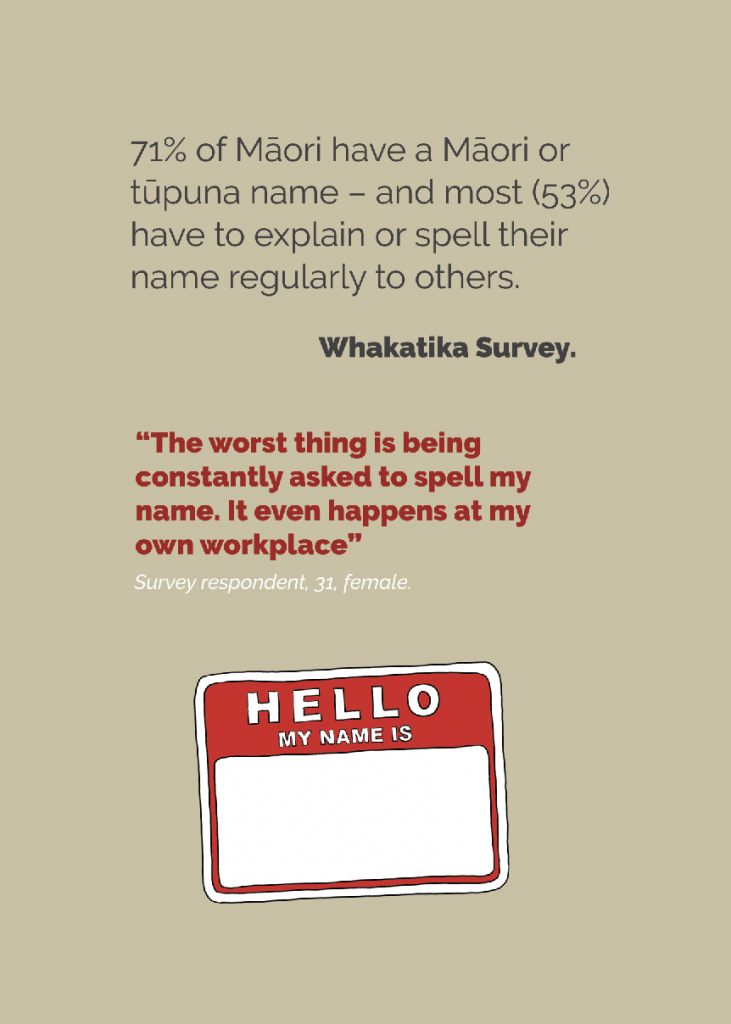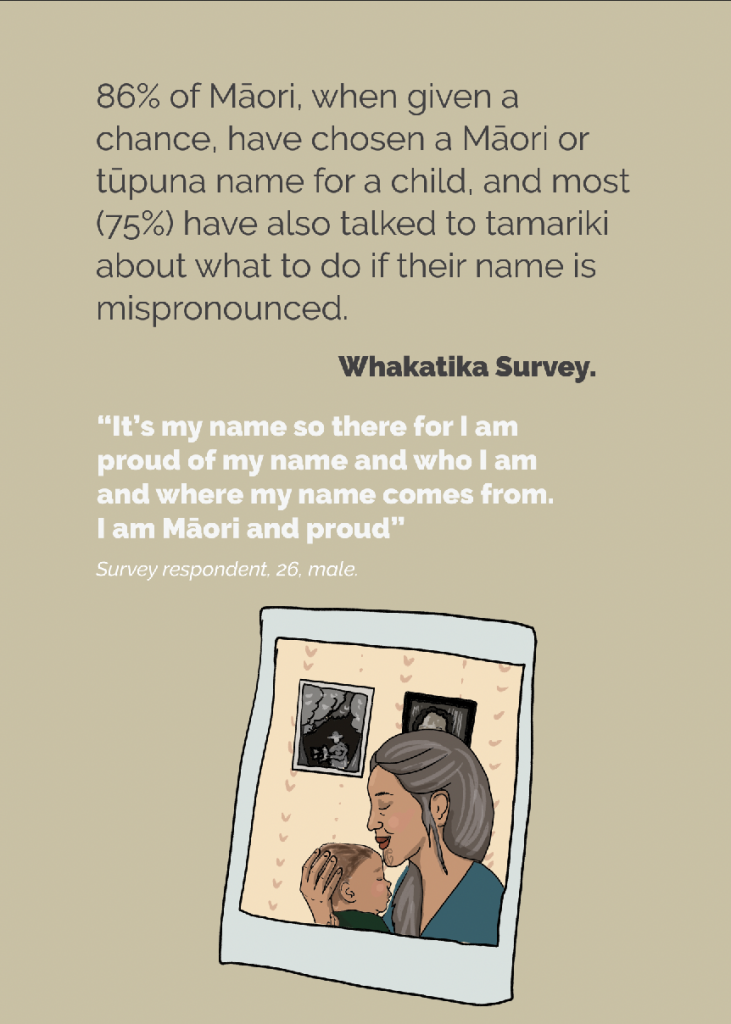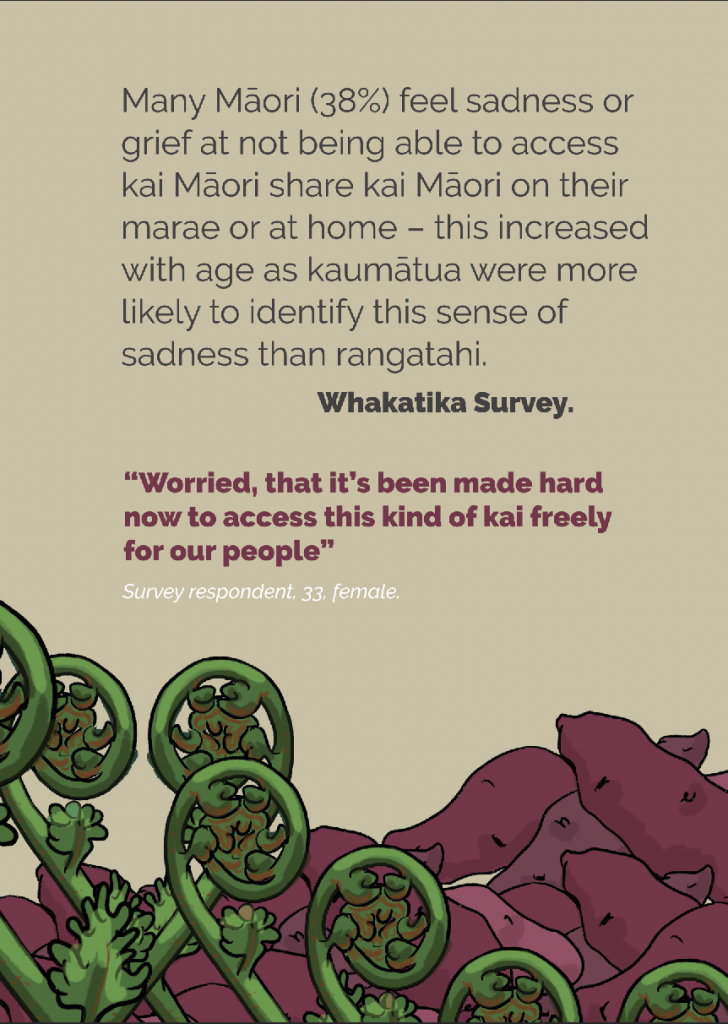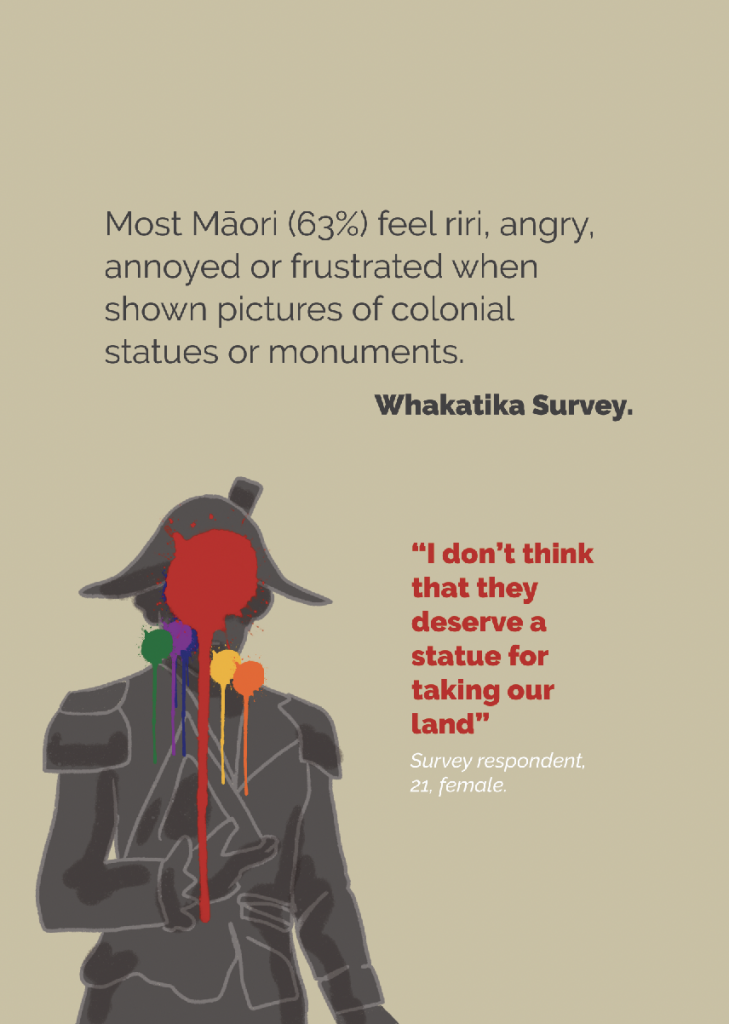KEY RESULTS
• The vast majority of Māori (93%) felt racism had an impact on them on a daily basis and even more (96%) said that racism was a problem for their wider whānau at least to some extent.
• While most Māori feel comfortable identifying as Māori all of the time, this varied by location. Māori felt most comfortable on marae, at home or at iwi events. Comparatively, Māori felt less comfortable identifying as Māori in education and workplace settings and some shared concerns about racism in workplaces in particular.
• Māori are left feeling pōuri (a deep sense of sadness) or riri (anger) at their experiences of racism.
• Being with whānau and being able to talk to whānau are critical to Māori identity and to Māori responses to racism.
Getting service / shopping
• When it came to getting service in shops, 89% of Māori said they were less likely than other customers to get assistance because they are Māori, at least some of the time. Most have also been followed, watched or asked to open their bags in a shop and a quarter of Māori say they are followed all of the time or often. This unfair treatment leads to feelings of anger and many also felt pōuri at the racist treatment they received when seeking services.
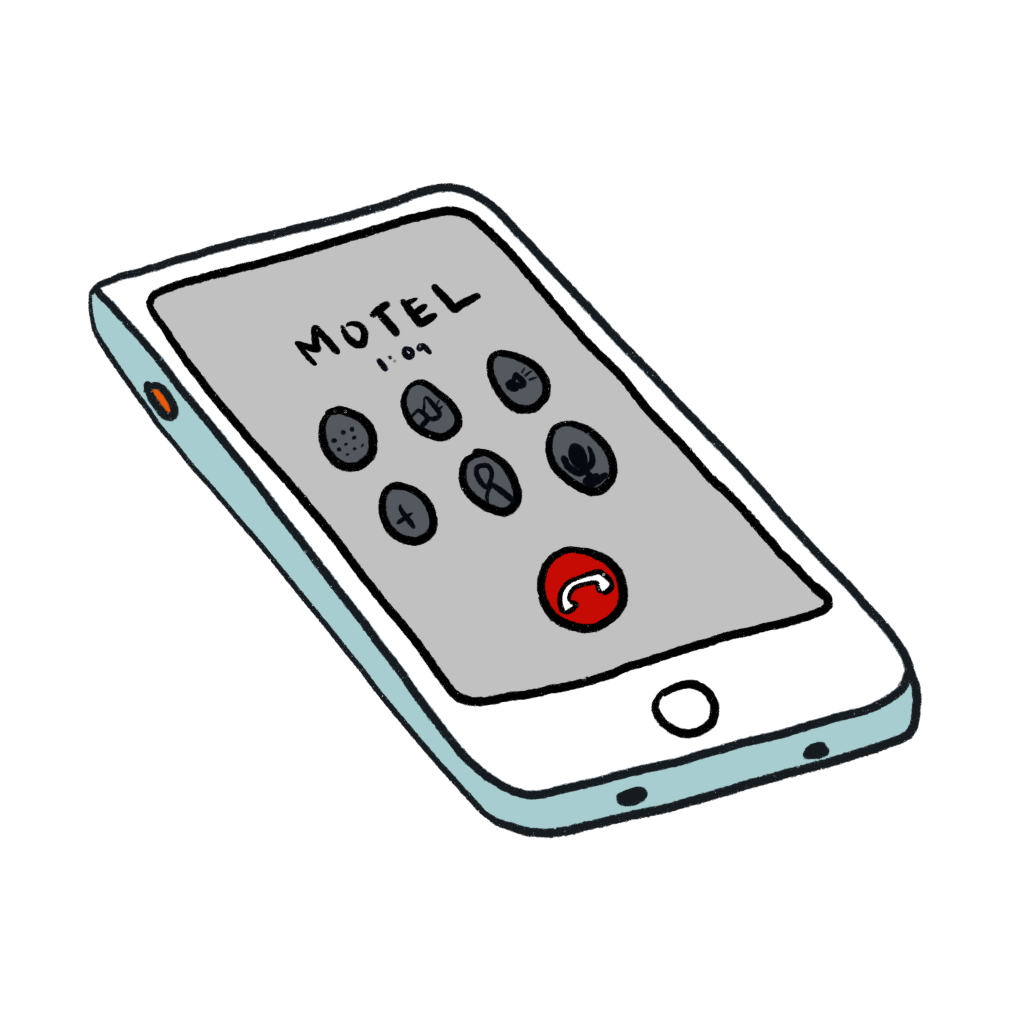
• 87% of Māori had observed other Māori being treated unfairly in shops. Only eight per cent said they had never observed such treatment.
• In response to not receiving fair treatment at a counter because they are Māori, people employed a range of strategies including talking to whānau (40%), confronting the person serving them (38%) and never going back to the store (31%).
Media representation of Māori, Indigenous peoples and colonial monuments
• Colonial statues caused anger for 63% of Māori.
• Most Māori (79%) said that non-Māori media negatively portray Māori all of the time or often, and there was a lot of worry amongst Māori that high profile news stories would be about a Māori person.
• In response to negative media stories about Māori, people were most likely to talk to whānau and friends (62%), although many chose to post comments online or post a social media story in response.

• 91% of Māori recall seeing clips from overseas about racism and violence towards other Indigenous people and nearly all respondents had negative feelings (such as anger) towards what they had seen in the coverage.
Tūpuna or Māori names
• 71% of Māori have a Māori name (it could be a first name, middle name or surname) and a little over half of all respondents (53%) said they had to spell their name all of the time or often and similar numbers said they had to explain their Māori name(s) regularly.
• 86% of Māori, when given the chance to name a child, have chosen a Māori or tupuna name. Most of these people have also talked to that child about what to do if their name is mispronounced (75%).

Māori kai
• 76% of Māori said that most of their whānau had knowledge about Māori kai.
• 64% of Māori said that their whānau actively harvest, gather or buy Māori kai all of the time or often, and 87% of Māori said that it was very or extremely important to be able to do so.

• Most respondents (76%) were involved in cooking Māori kai for their whānau, hapū or iwi and a little over a third of people were involved in growing kai or rongoā.
• 38% of Māori said they are left feeling sadness and grief at not being able to access kai or to have kai shared at marae or at home. Feeling pōuri increased with age, as kaumātua were more likely to identify feeling the sense of sadness than rangatahi.
Whakatika Report
National Literature Review
International Literature Review

